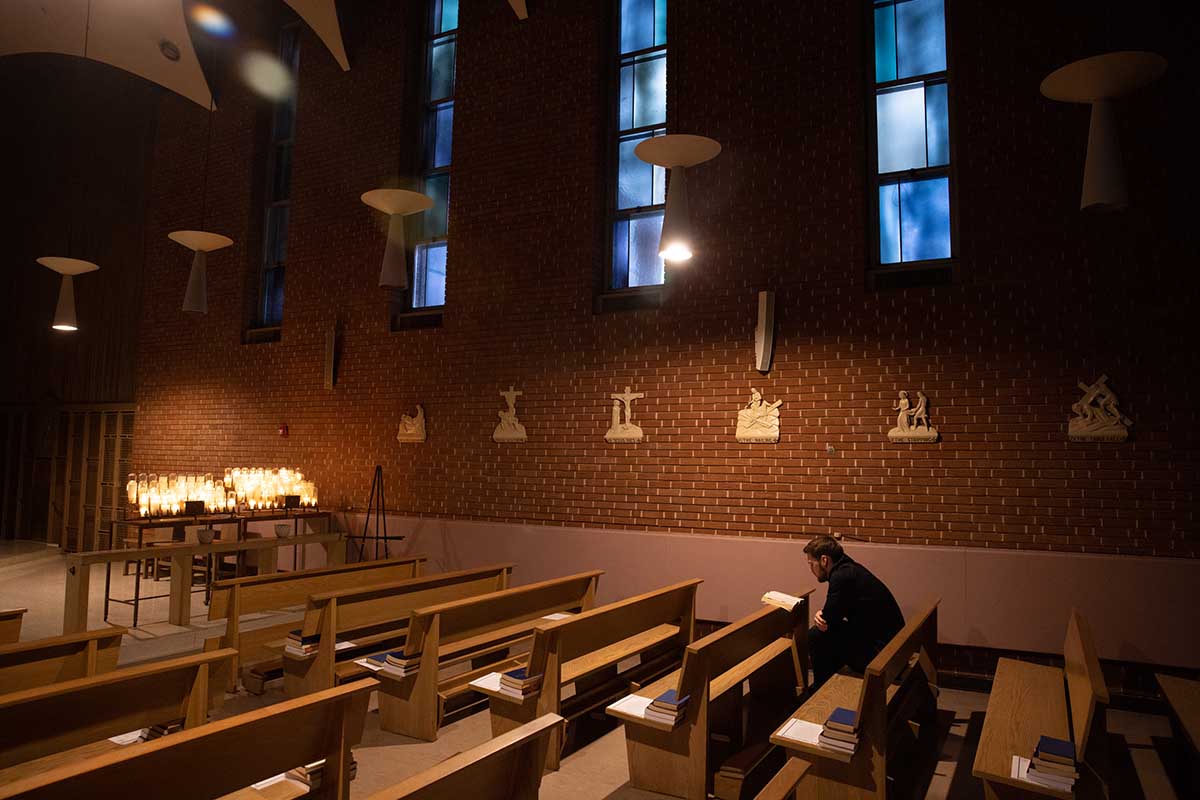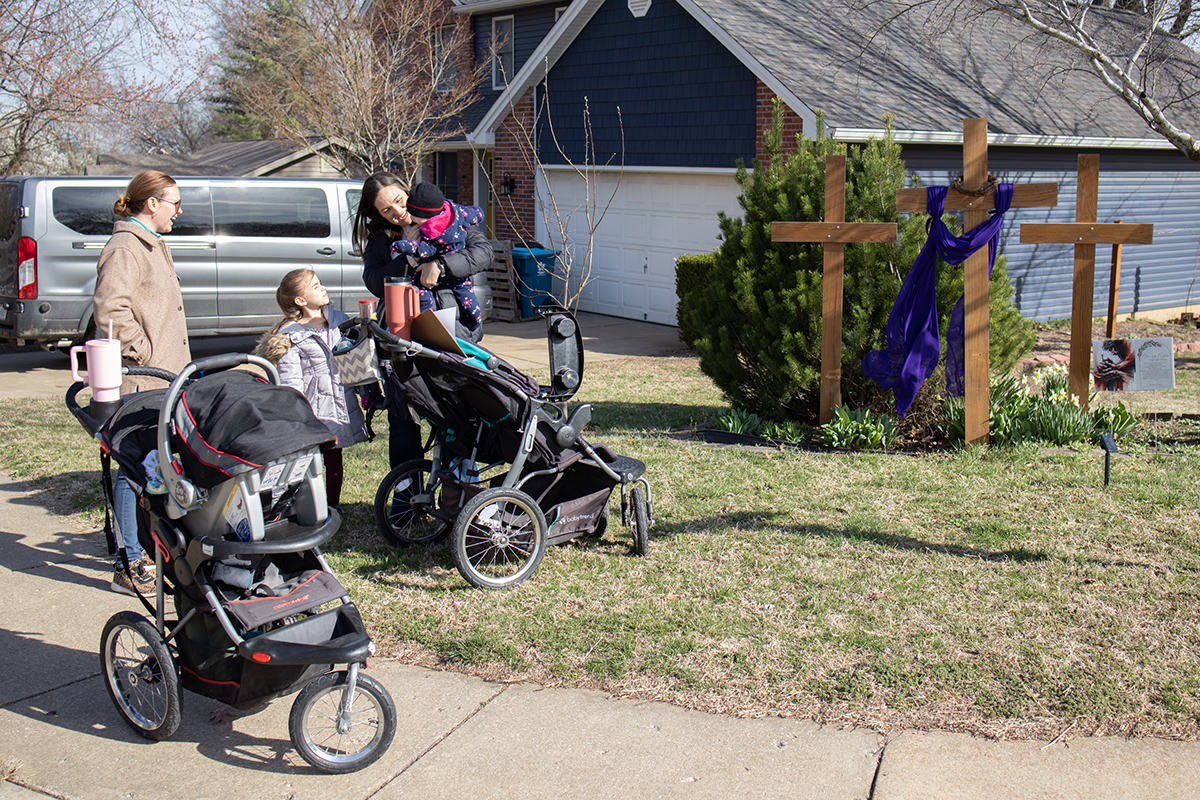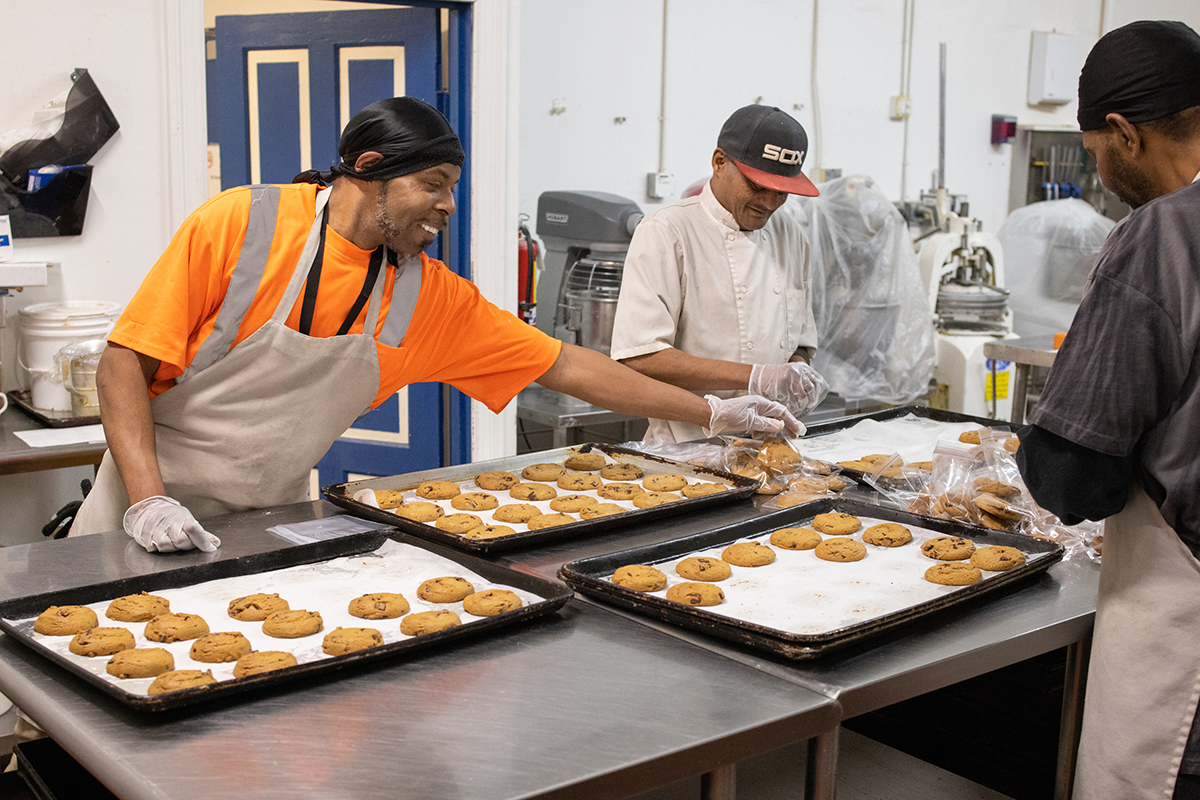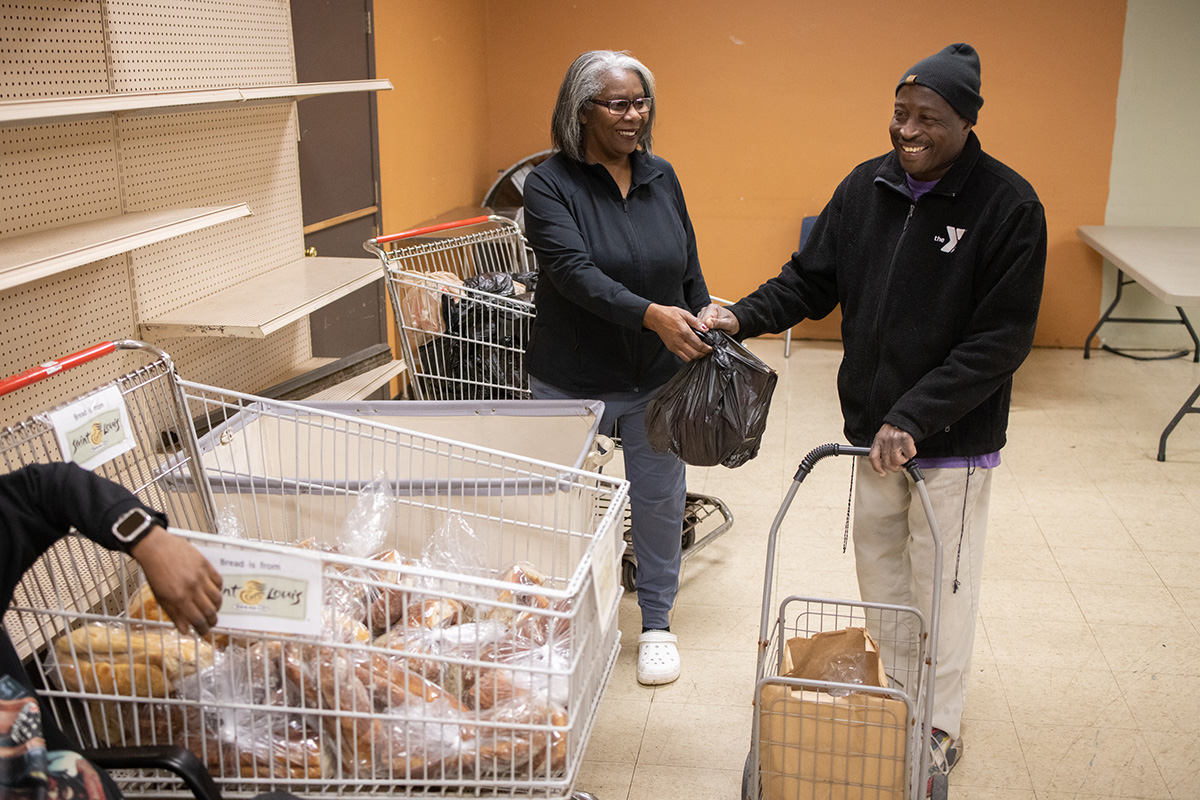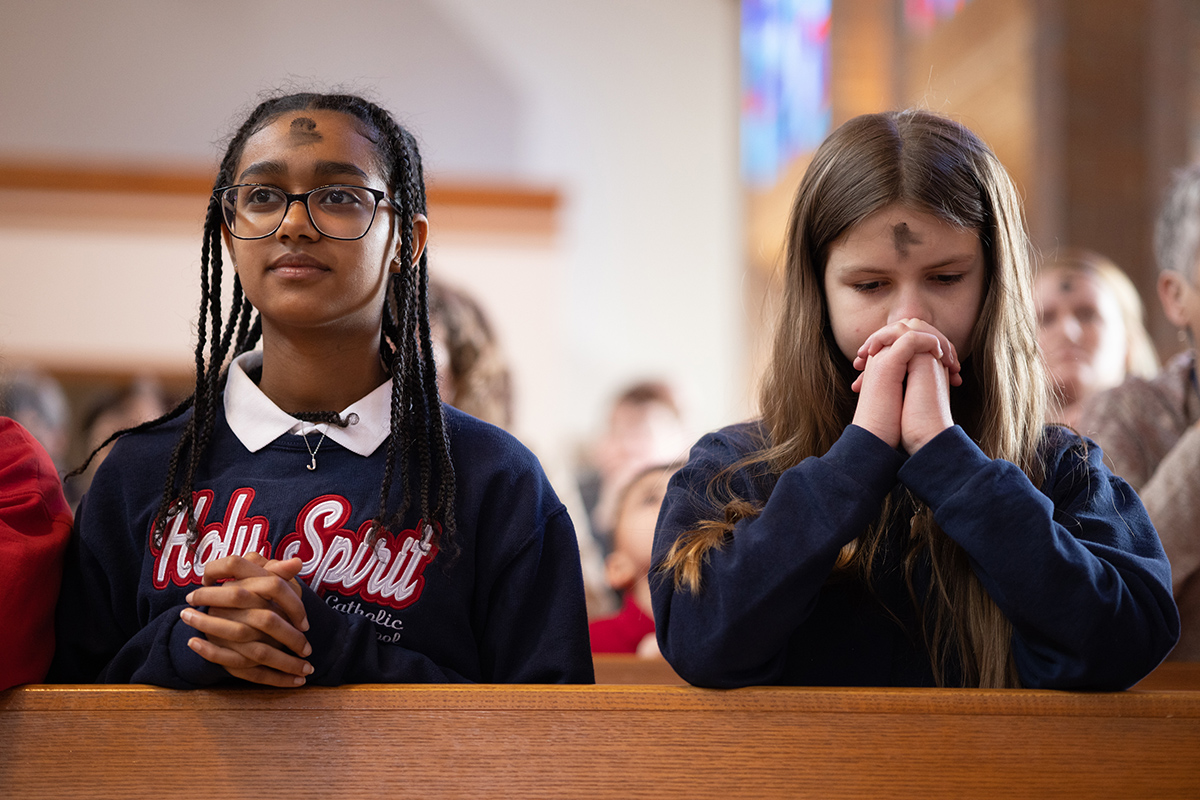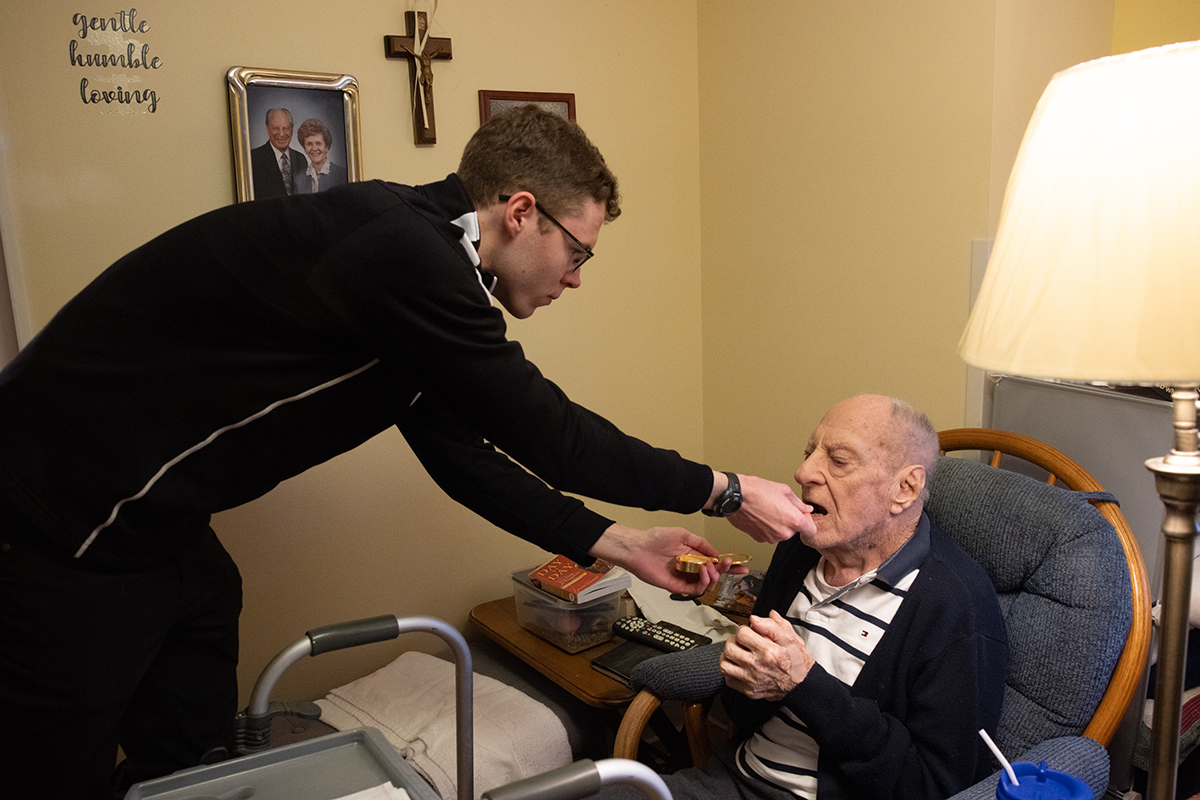St. Augustine-Wellston Center ‘committed to help’
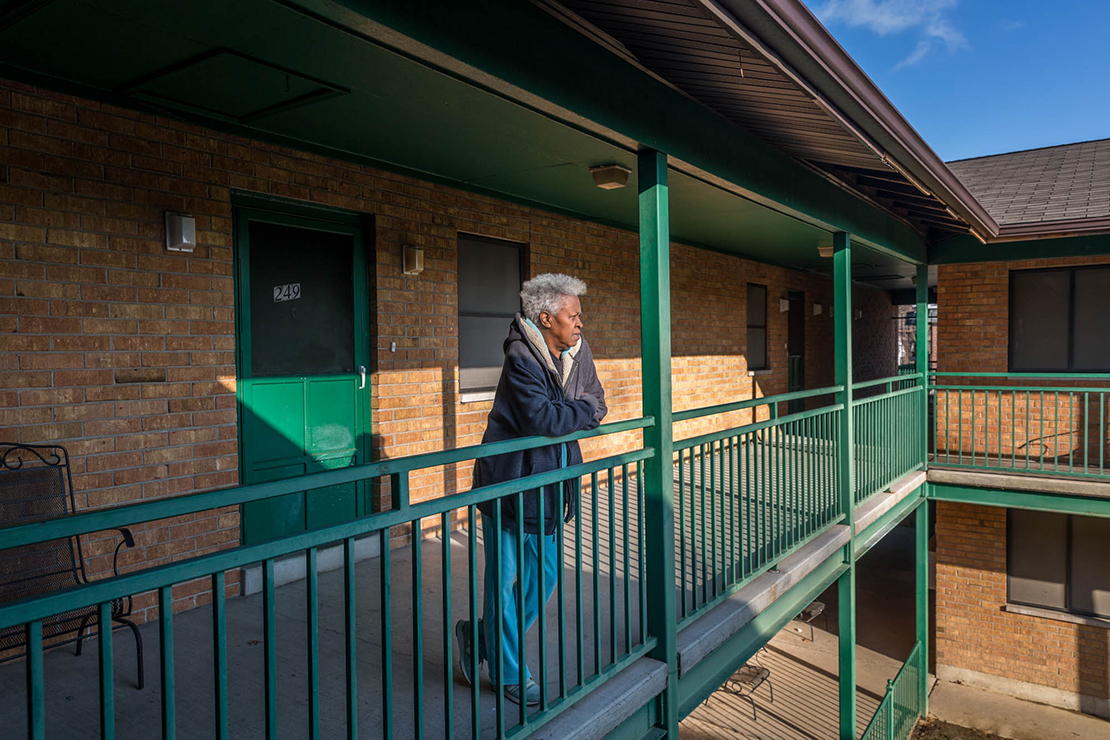
As the U.S. Department of Housing and Urban Development looks to eradicate public housing in Wellston, the St. Augustine-Wellston Center is uniting with residents to help them stay put
When Wellston residents showed up at a regular Thursday morning gathering last November at the St. Augustine-Wellston Center, Sister Carol Ann Callahan could tell something was up.
They were “very stressed out,” recalled the center director. Residents at a senior public housing complex had been notified that the U.S. Department of Housing and Urban Development wants to demolish the building, among other public housing units in Wellston — a total of 201 to be exact.
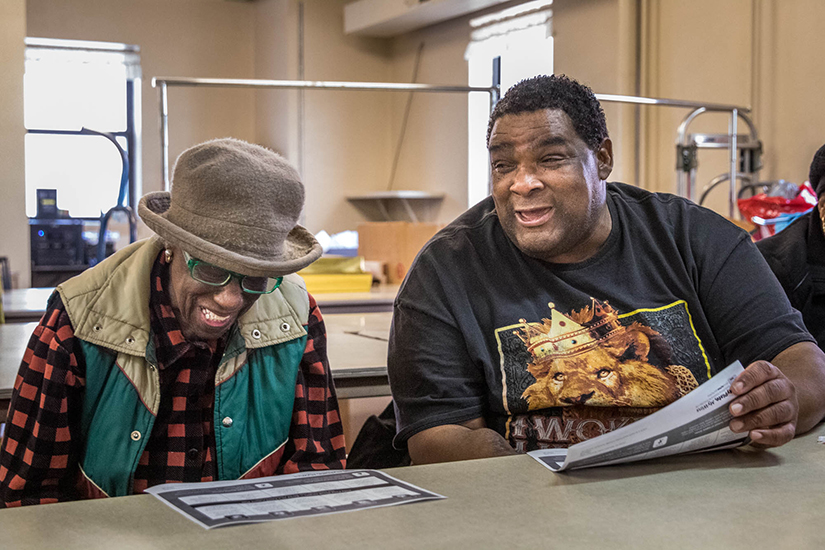
The Religious Sister of Mercy jumped to action. She called several board members, including Wellston Mayor Nathaniel Griffin, and Marie Kenyon, director of the archdiocesan Peace and Justice Commission, to see what could be done.
Resident Flora Mix, a resident of the senior complex who has called Wellston home since 1968, said she doesn’t want to leave. “Everyone’s so stressed,” she said.
The move could impact more than 500 residents in Wellston, a north St. Louis County municipality that covers roughly one square mile near the western St. Louis border. Mix, who once lived in Cochran Gardens, another public housing complex in St. Louis that was demolished 10 years ago, said this looks like history repeating itself. Almost 97 percent of the town’s population of about 1,800 is African-American.
“First they did it to Pruitt-Igoe,” she said. “Then Cochran. In the meantime, they’re displacing a lot of people.”
Sister Carol Ann noted the impact the government’s move could have on residents as well as the center, which was founded in 1992 from the merger of five Catholic parishes in the North City Deanery to serve the needs of low-income residents in the area.
“We’re all in this together,” she said.
‘We have to be a part of their lives’
HUD’s announcement came after a year of efforts to return control of the Wellston Housing Authority to the City of Wellston. HUD, which has managed the public housing authority in Wellston in receivership since 1996, cited a lack of funds available to maintain the buildings, many of which are in need of repair. HUD has said it will offer vouchers to help relocate residents, but residents and advocates have said the vouchers likely won’t be enough to help with relocation.
“We don’t just give out food — we have to be a part of their lives,” said Sister Carol Ann. “The residents have said they want to stay here. We’re afraid of losing them. Many of them are on fixed incomes and the vouchers won’t be enough. We said we want to help — and we’re committed to help.”
Communication from HUD halted in December, when the federal government shut down. At a regular gathering in January at the Wellston Center, residents said they weren’t getting any new information. In the meantime, several of them reported seeing new people moving into public housing, with others moving out. The shutdown came to an end on Jan. 25. Another shutdown is possible as the legislature and president negotiate a budget and immigration policy.
Legal Services of Eastern Missouri, which is representing the Wellston Tenant Association, sent a letter to HUD in early February asking the agency to halt plans to demolish public housing in Wellston until an alternative solution could be developed.
“We’re at a standstill,” Mix said back in January. “Until we find out what’s going on, I guess it’s business as usual.”
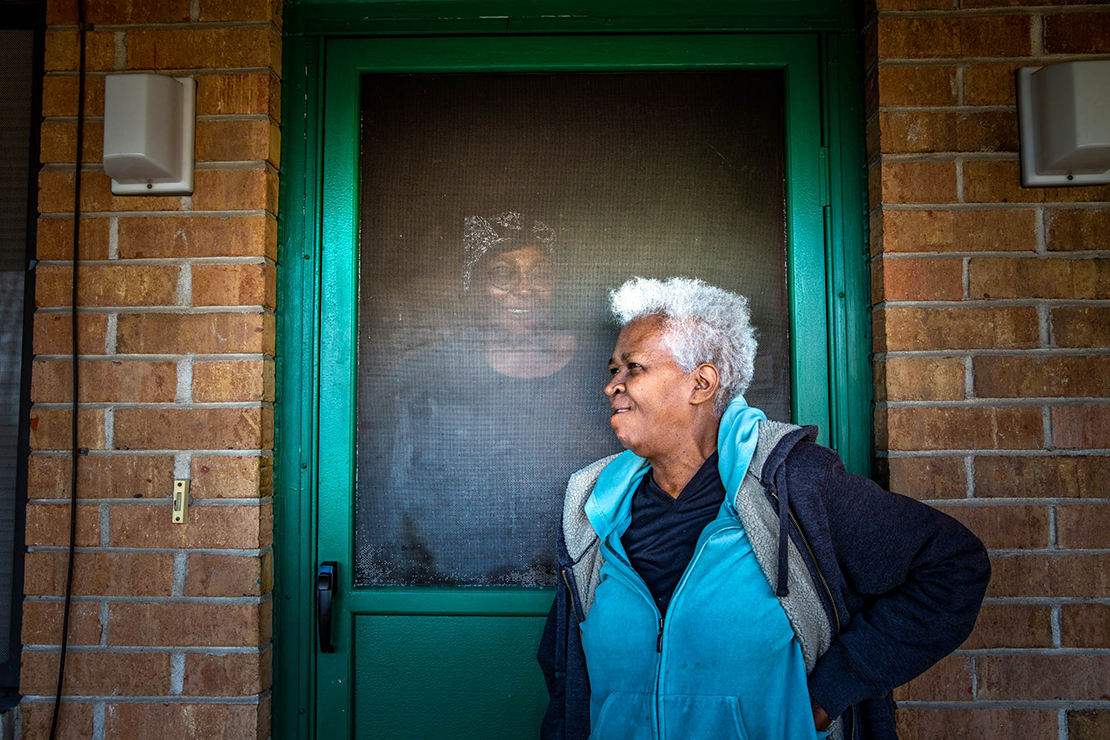
Helping one another
Every Thursday morning, a small group of residents meets at the Wellston Center. A resident physician from Mercy St. Louis comes to talk to them about health care topics such as nutrition or preventive care, and then they stay to chat afterward.
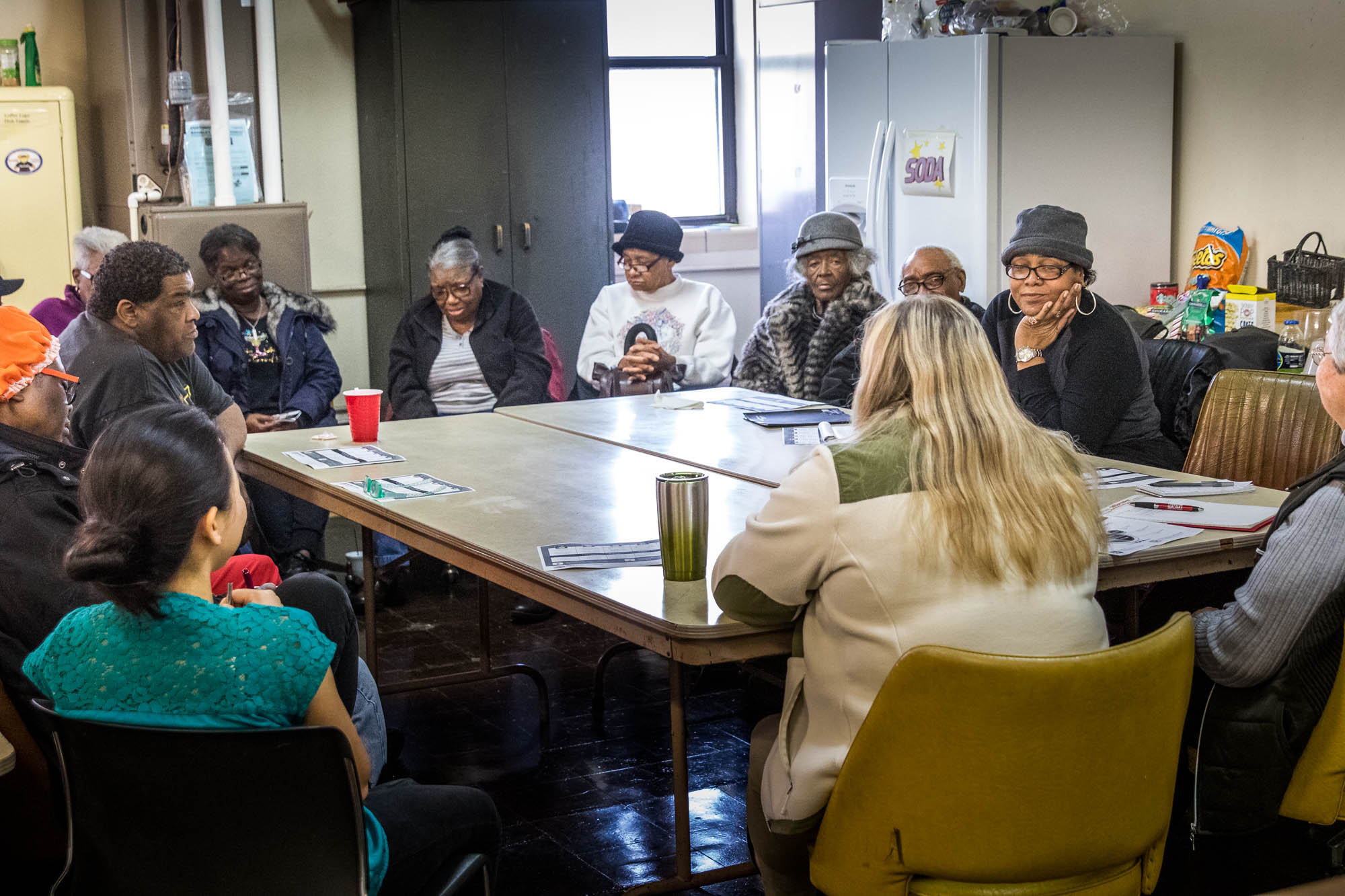
The group started meeting there about nine years ago. Many of the original members had sons or grandsons who had been shot and killed, said Sister Carol Ann. It was a place for them to share their grief with one another, she noted. After residents came to the group in November with their concerns about HUD’s announcement, Sister Carol Ann called in a physician to talk to them about managing stress.
Many of the residents have lived here for a long time said Sister Carol Ann. “They feel safe and they want to stay there. They know everybody and help one another.”
Sister Mary Beckman, SSND, started the Wellston Center in 1992 to provide services to the people of the five North City Deanery parishes that consolidated that year — St. Barbara, Notre Dame de Lourdes, St. Mark, St. Rose and St. Edward — which became St. Augustine. The food pantry operates twice a week, spending about about $3,000 a week on food. About 350 families are served every month. Sister Kathy Stark, SSND, helped start the thrift store, which also operates twice a week. A Christmas program provides deeply discounted items for purchase.
“People can come here for prayer, for counseling,” said Mammie Solomon, who renewed the lease on her unit at the senior complex in November. “It’s a big blessing.”
Flora Mix described the town in a similar way. She reminisced about the Coal Shed, a lounge her brother owned in Wellston. She helped bartend, even though she never cared to drink.
“It was a little place, but it was a place where you could come and enjoy yourself. You didn’t have to worry about any problems — like Cheers, where everybody knows your name,” she said. “We welcomed everyone into that lounge — black, white, everybody.”
The 71-year-old retired librarian moved into a studio apartment in the senior complex 10 years ago. The residents there look out for one another. Mix enjoys cooking meals such as lasagna and shares extras with her neighbors from time to time.
“If we don’t see somebody in a couple of days, we start to ask questions,” she said.
Seeking a solution
Sister Carol Ann contacted Wellston Center board member Marie Kenyon, who placed residents in touch with Legal Services of Eastern Missouri. The nonprofit organization is representing the Wellston Tenant Association, a group of tenants who reside in public housing in Wellston. Attorney Lisa D’Souza sent a letter to HUD on Feb. 5 asking to halt the plan to demolish housing so an alternative solution could be developed.
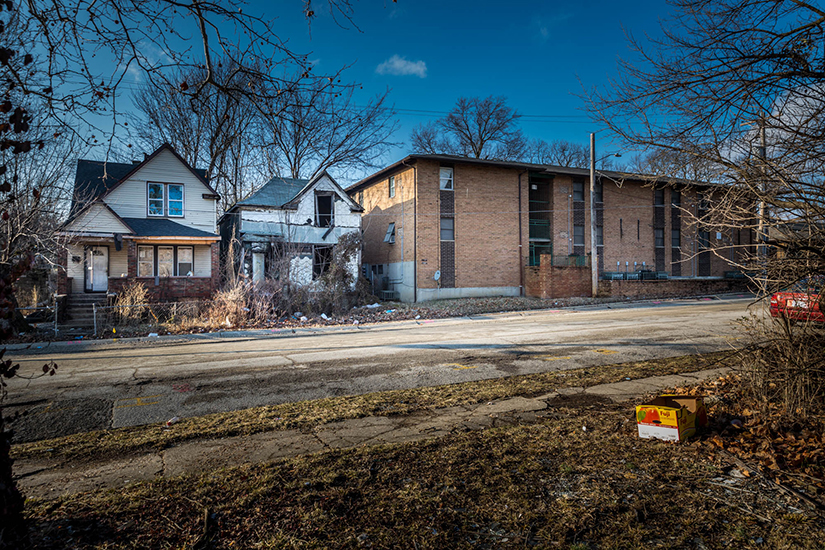
“People felt like they had no choice,” said D’Souza. “HUD has moved quickly and decided it’s walking away from this housing. We need some time to see if there’s a viable plan, which is something the city has not been afforded.”

Wellston Mayor Nathaniel Griffin said the city has been talking to investors about fixing up the housing — some of the units haven’t been updated in years. But those conversations are in the early stages and will need time to develop, he noted.
D’Souza described this as a moral issue that cannot be overlooked. “This is a repeat of what has happened in this region,” she said. “Black communities have been pushed out of places and displaced time and again.” In her letter to HUD, she noted other once-thriving black communities including Mill Creek Valley and Kinloch that have been destroyed over time because of government action.
“By deciding to walk away from the housing that HUD has run for more than two decades without creating any plan for Wellston’s future, HUD will add another location to this already-too-long list of African-American families and communities destroyed by the very government that should protect and serve them,” she wrote in the letter.
Wellston is an area ripe for redevelopment, D’Souza said. With close proximity to Washington University, and a Metrolink hub, “Wellston could become a thriving city that welcomes people of various backgrounds and also honors the people who have been here for a long time. The people of Wellston want to stay for what it can be.”
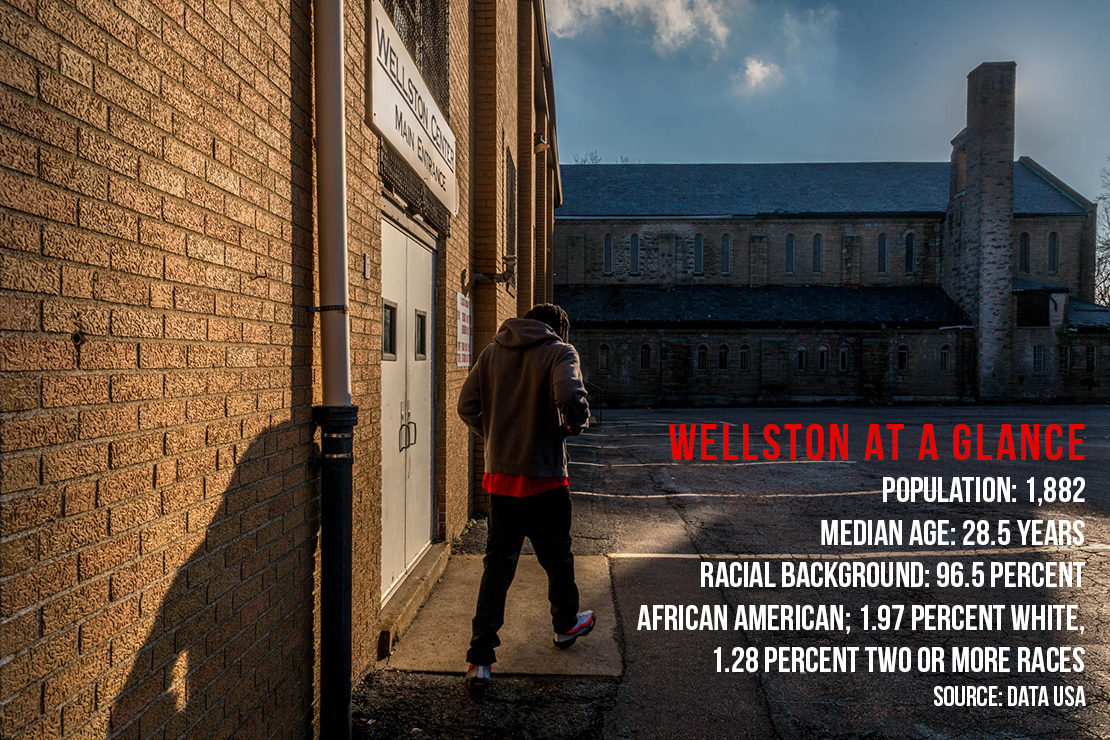
>> Further reading
“Open Wide Our Hearts: The Enduring Call to Love,” the U.S. bishops’ recent pastoral letter against racism, calls Catholics to an ongoing conversion of heart in overcoming the sin of racism. The letter in particular notes the “years of systemic racism working in how resources are allocated to communities that remain de facto segregated.”
The pastoral letter outlines numerous calls to action. Also noted is the “sin of omission, when individuals, communities and even churches remain silent and fail to act against racial injustice when it is encountered.” To read the entire letter, see www.usccb.org/racism.
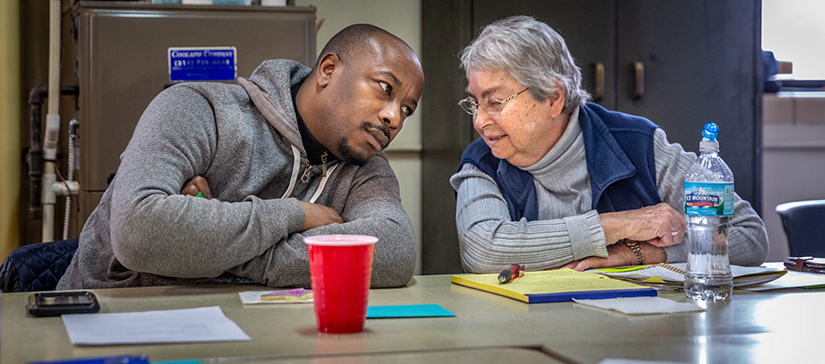
For the Sake of All’s has a report, “Segregation in St. Louis: Dismantling the Divide,” which details the displacement of black communities in the St. Louis area. Read more at: bit.ly/2Sqytfb
>> How to help
The St. Augustine-Wellston Center operates a food pantry and thrift store, each two days a week. The center is always looking for donations of non-perishable food, as well as cash donations to help with utilities and medicine.
The center also is in need of new delivery truck with a lift gate to pick up donated furniture, clothing and food.
Contributions may be sent to the St. Augustine-Wellston Center at P.O. Box 11969, St. Louis, MO 63112-0069. The center is located at 1705 Kienlen Ave. For more information, call (314) 382-7158.
>> Take action
Write to the U.S. Department of Housing and Urban Development and legislators, asking to halt plans to demolish public housing in Wellston.
Write to Hon. Benjamin Carson, U.S. Department of Housing and Urban Development, 451 7th St. S.W., Washington, D.C. 20410
To look up and contact your legislators, visit www.house.gov and www.senate.gov.
When Wellston residents showed up at a regular Thursday morning gathering last November at the St. Augustine-Wellston Center, Sister Carol Ann Callahan could tell something was up. They were “very … St. Augustine-Wellston Center ‘committed to help’
Subscribe to Read All St. Louis Review Stories
All readers receive 5 stories to read free per month. After that, readers will need to be logged in.
If you are currently receive the St. Louis Review at your home or office, please send your name and address (and subscriber id if you know it) to subscriptions@stlouisreview.com to get your login information.
If you are not currently a subscriber to the St. Louis Review, please contact subscriptions@stlouisreview.com for information on how to subscribe.

